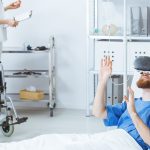Last year, when we asked science and health care soothsayers to peek ahead to 2019, they told us that methamphetamine use would rise (it did), tumor organoids would near clinical use for personalizing cancer treatment and better targeting clinical trials (that’s happening), and price transparency wouldn’t bring lower health spending (that’s true, too). But nobody predicted the outbreak of lung injuries tied to vaping, the failure and attempted resurrection of Biogen’s Alzheimer’s drug aducanumab, or the restoration of cellular functions in pig brains after death.
We’re back with a new set of predictions for 2020. Let’s see how our experts do this time.
Results for a broad array of approaches to treating Alzheimer’s
Alzheimer’s research and discovery is moving quickly, from possible early detection to treatments — which could be a combination approach: mixes of medicines, or drug and lifestyle combos, that attack the disease from multiple angles. Thanks to increased funding and exploration of new ideas, scientists now know more about dementia than ever before, and are investigating a diverse array of options.
Looking to 2020, the scientific community eagerly awaits the FDA’s review of Biogen’s amyloid-attacking drug, aducanumab. We’re also anticipating results from studies of anti-tau compounds, strategies to reduce brain inflammation, research into oral microbes and gut bacteria, dementia prevention trials, and developments in early detection such as biomarkers. Finally, research looking at lifestyle-related contributions to dementia risk continues to advance, including clinical trials such as U.S. POINTER.
Tech will change how we get care, but only if companies earn our trust
Want to publish your own articles on DistilINFO Publications?
Send us an email, we will get in touch with you.
Technology is ready to enter your doctor’s office in a big way. But there’s an “if.”
With the technology available today and emerging on the horizon, care will hopefully be easier to obtain, understand and afford. In particular, we’re beginning to see advances in artificial intelligence that could help improve the accuracy of your diagnosis. Other tools could help organize medical records and make them more useful so that your caregivers (doctors, nurses, and others) spend less time at computer terminals and more time connecting with you in a human way.
The big “if” is “trust.” These tools, and more importantly, the companies that seek to build and deploy them, must remember that to be successful in health care the patient-doctor relationship, and the privacy of health data, cannot be compromised.
Source: Stat News







